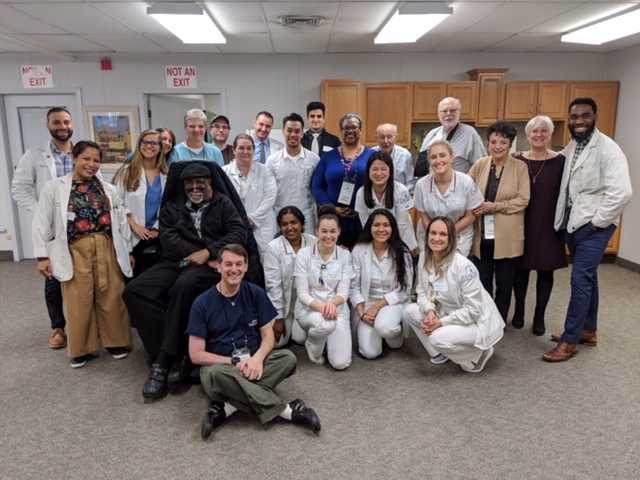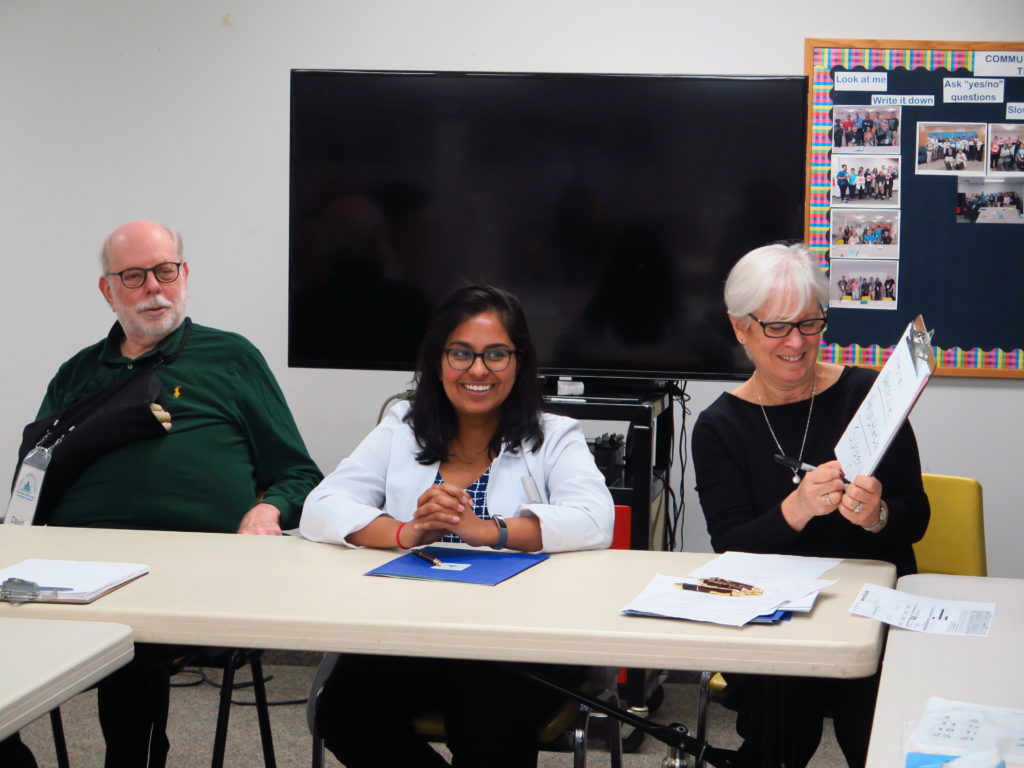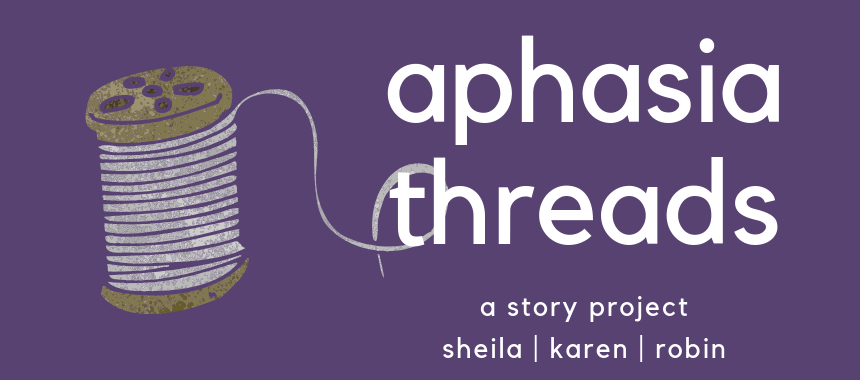Welcome to the Aphasia Threads Project, which weaves together three points-of-view: people with aphasia, caregivers, and the professionals who help each family navigate aphasia. Each week, we bring together three unrelated stories, one from each member of this triad, to learn from their experience. This week, we’ll hear from Sheila, a person with primary progressive aphasia. Then, we’ll hear from Karen, who is a caregiver for her father who had a stroke. Finally, we’ll hear from Robin, who works at the Adler Aphasia Center in New Jersey.

Person with Aphasia
I noticed my speech was getting slower in the summer of 2014. I knew what I wanted to say but couldn’t get the words out. I went to my primary care physician and she said your speech has always been deliberate and sent me on my way. My daughter is a nurse practitioner in another state, and she said to go to a neurologist. I went back to my doctor to get a referral. I went to a local neurologist, and he sent me for an MRI and diagnosed with me with Alzheimer’s disease and prescribed Aricept.
I was devastated and wanted the diagnosis confirmed. I called the Brain and Memory Center at the University of Washington and after many tests, they diagnosed me with Primary Progressive Non-Fluent Aphasia in December of 2017. And, again I was devastated when I googled it and saw all the symptoms. But, I have gotten over that and want to live every day! I am lucky that I have only the slow speech and no other symptoms at this time.
Aphasia Changes Your Life
It’s very difficult to call for an appointment on the phone or question a bill; I usually ask them to bear with me as I have slow speech. Or I ask a relative or friend to talk on the phone. I have a boyfriend who I have been seeing since 2012, and he goes with me to speech therapy and all doctor appointments at the University of Washington. I have a card that says I have aphasia and use it when face-to-face contacts with strangers require it.
But There Are Things That Help
I go to speech therapy and have a TMS machine which I use 20 minutes twice a day morning and night. I went to a doctor in Arizona that my daughter knew for transcranial magnetic stimulation, and he prescribed a home machine to use at home.
And Things You Learn Along the Way
Learn as much as you can for your type of aphasia and prepare for the future.
What Caregivers and Professionals Can Learn From Me
All people with aphasia don’t have the same symptoms for the type of aphasia they have and need specialized treatment. I am traveling while I still can and living every day!

Caregiver
My father had a stroke.

Aphasia Changes Your Life
It meant he was unable to walk but sat up quite well in a wheelchair.
But There Are Things That Help
His Doro cell phone.
And Things You Learn Along the Way
Invest in the physiotherapy and lots of speech therapy.
What People with Aphasia and Professionals Can Learn From Me
We are committed to helping our friends, family, and loved ones. Be patient. Judge for yourself.

Professional
Robin works at the Adler Aphasia Center in New Jersey.
I started volunteering at the Adler Aphasia Center 11 1/2 years ago, knowing very little about aphasia. As I became more involved, I fell in love with the center and our hopeful, positive, and upbeat members. After 3 1/2 years, I was hired to do outreach for the center and facilitate some of our groups. For several years now I have been the Education and Training Coordinator as well.

What I’ve Noticed Along the Way
As a person who does outreach and education, I find it frustrating how few people even know what aphasia is. When working with medical personnel, including medical residents, med students, nursing students, I see that even most of them don’t understand the long term impact aphasia can have on a person’s life.
In addition, many are surprised to see that progress is still being made many years after a stroke or brain injury or disease. The joy I feel in my job is seeing how much fun our members have and how they all strive to live their lives to the fullest, despite their struggles.
There Are Things That Help
Supported Communication Strategies based on those from the Aphasia Institute are invaluable in extending conversation.
And I Encourage New Professionals to Learn About Aphasia
Having the medical community understand these techniques and how to use them make all the difference in a successful doctor’s visit or hospital stay.

What People with Aphasia and Caregivers Can Learn From Me
Once a person has gone through the process of mourning the loss of their “old” selves, they are able to embrace the new reality and even find strengths and interests that they didn’t know they had.

Want to Be Featured in a Future Article?
Aphasia Threads is an on-going project created by the National Aphasia Association. If you’d like to be featured, don’t leave a comment. Instead, please read the opening post for more information or fill out our form and we’ll contact you.



